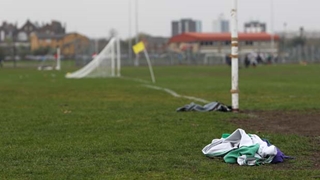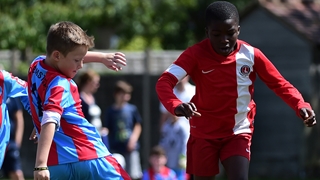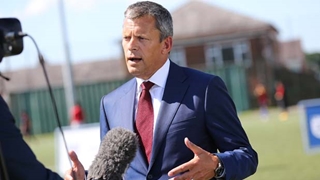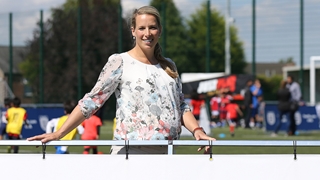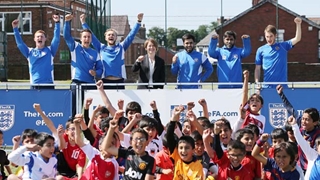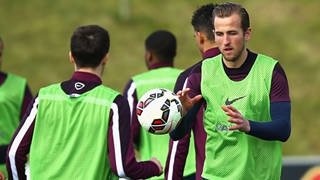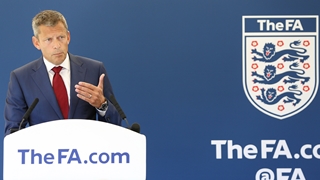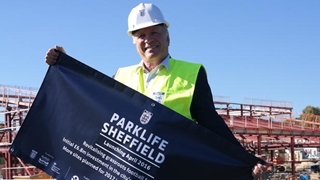
Greg Dyke has hailed a "breakthrough" in the provision of grassroots football facilities in England, with his vision for centralised city hubs now just six months from lift off.
The FA Chairman was in Sheffield to signal the countdown to the creation of the first two hubs which form part of The FA’s ‘Parklife’ plan to revitalise grassroots facilities and improve coaching.
From next April, the city will see the emergence of the first of up to 150 football hubs to be built across 30 English cities, thanks to FA and government funding.
Alongside backing from Sheffield City Council for this first hub, around £6.8m has been invested in ‘Parklife’- as the project has become known.
Over the next four years, these levels of funding are set to be replicated in similar projects across the country by The FA and its investment partners.
And Dyke was on hand to put the first spade in the ground at Thorncliffe, one of the two initial Sheffield sites.
It will be home to two new full size 3G football pitches, two fully drained 11v11 grass pitches with extensive changing room, coach education and social facilities.
Dyke said: "We set out a clear objective through the England Commission and thanks to the hard work of all those involved, this exciting project is now just six months away from coming to life. This is a major breakthrough in the provision of grassroots football facilities.
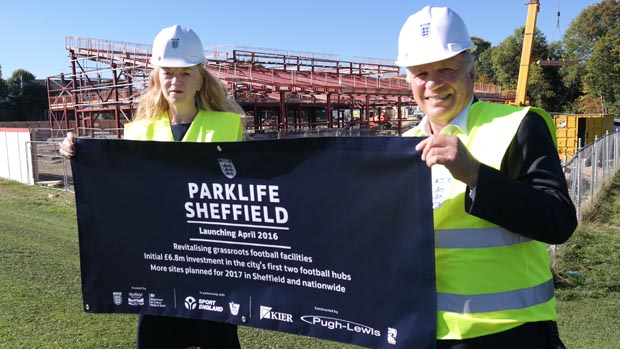
Dyke with Councillor Isobel Bowler at Thorncliffe, the site of one of the first two Community Football Hubs set to open in April 2016
"We need to make football facilities more accessible, more of the time while addressing the desperate need to reduce the reliance on local authority subsidies.
"The model we have developed serves to do precisely that with the creation of significantly more all-weather 3G artificial grass pitches using a sustainable model of investment, ownership and management."
Sports Minister Tracey Crouch added: "Better football facilities are crucial if we are to strengthen the sport at the grassroots and that is exactly why the government is backing Parklife with investment.
"The grassroots is where it all begins - it is where our future sport stars develop their skills to succeed but it is also where friendships and a life-long passion for sport can be formed too.
"Not only will Parklife build more all-weather artificial pitches across the country, it will also increase coaching provision for young people.
"It is my mission to get more people involved in sport for all the benefits that it can bring. With projects like Parklife I believe we've got real potential to succeed."
Investment in facilities forms a central part of The FA’s new strategy for Participation and Development. The four areas where the new strategy will impact are:
Boosting participation: Building on the increases in boys and girls participation and growth in disability football, while delivering more varied formats of the game to address the drop in traditional 11v11 weekend football among adult males.
Developing better players: £4m per year will be invested in grassroots coaching. There will be a network of County Coaches – tasked with improving and supporting coaching across grassroots football with club mentoring programmes. The extension of coach bursaries will get more women and people from diverse backgrounds into the profession and there will be a drive to get more top level grassroots coaches into the game.
Better training and facilities: In addition to the football hubs project, The FA is committing £48m to improving facilities directly through its funding of the Football Foundation as well as investment in 100 new turf pitches and improvements to a further 2,000 as part of The FA’s Pitch Improvement Plan. Since 2000, The FA along with its funding partners the Premier League and Government have created more than 13,000 grants worth more than £530m towards improving grassroots sport, which it has used to attract additional partnership funding of over £740m – over £1.3bn of investment into the grassroots game.
Football workforce: Football will become more representative of the communities it serves through inclusion initiatives. The FA is also rolling out technology to run the game more efficiently and create direct lines of communication with players across all grassroots leagues making football truly integrated.


